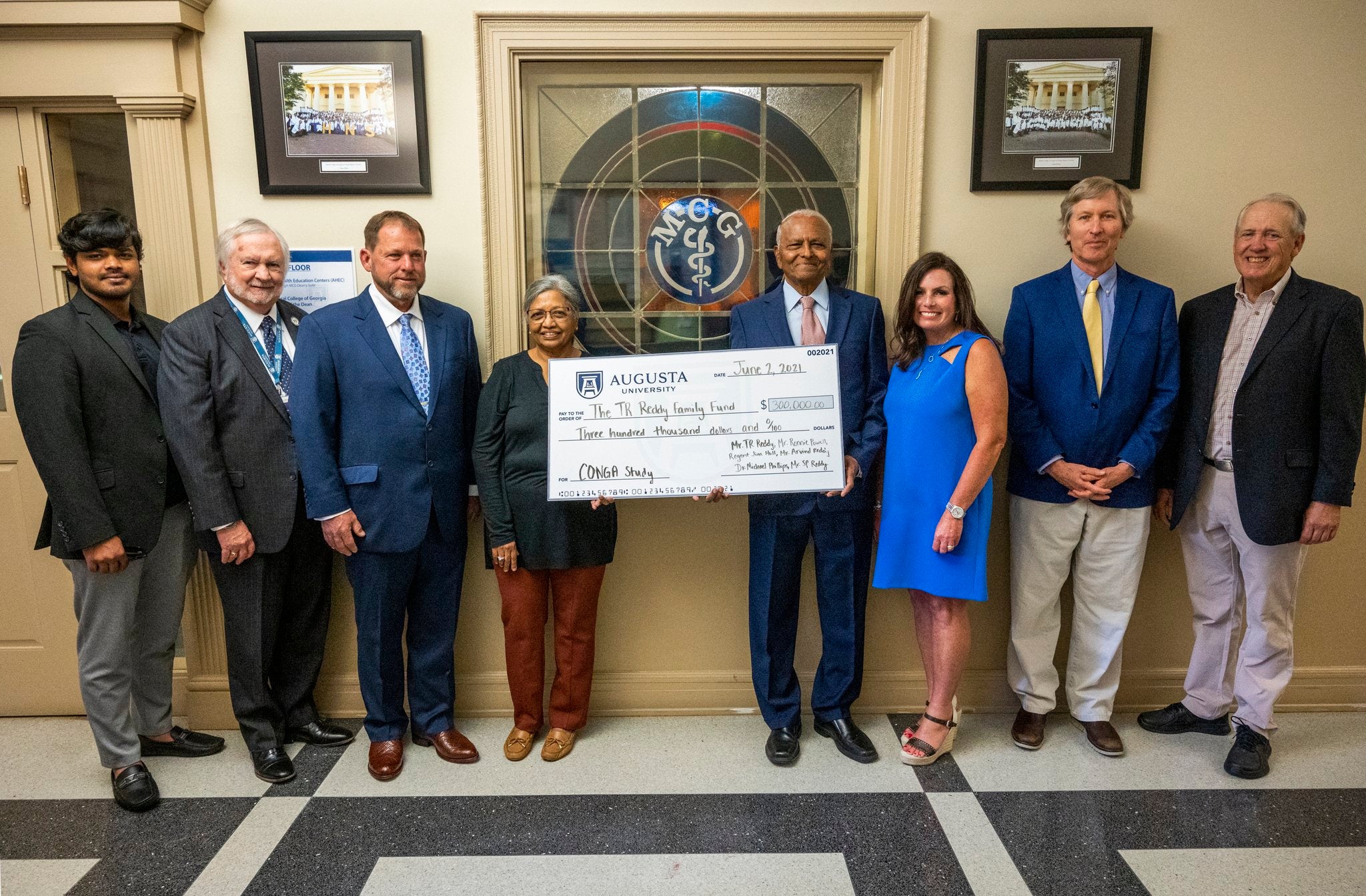A project to track how COVID-19 will impact an individual’s health in the future received a financial shot in the arm.
The program, called COVID-19 Neurological and Molecular Perspective Cohort Study in Georgia, or CONGA, for short, will be conducted at the Medical College of Georgia.
The program received $308,000 in emergency COVID-19 funding from the National Institutes of Health. That will fund the first year of the study.
MORE: The Unseen Symptoms of COVID-19 are Deadly Too
On Wednesday, three local philanthropists, TR Reddy and his wife Dr. Anjiji Reddy, Jim Hull, chair of the AU Health System Board and member of the Georgia Board of Regents, and Ronnie Powell, owner of Powell Construction in Appling, added another $300,000.
Other members of the Reddy family have also committed to help fund the study.
“We still are only at the tip of the iceberg when it comes to finding out what the long-term sequelae of this virus will be. Its impact will need to be studied for many years to come,” said MCG Dean Dr. David Hess, a stroke specialist.
[adrotate banner=”22″]
Dr. Hess, who is also one of the principal investigators, added, “While federal funding helped initiate critical studies like these, philanthropic funding is essential to continuing the work long-term. I am thankful to the Reddy and Powell Families and to Regent Hull and others for recognizing the importance and impact of this work.”
Researchers want to follow adults who had COVID-19 and still suffer lingering symptoms, including loss of taste and smell along with neurological issues like memory loss. Investigators want to recruit 1,000 patients in Georgia over the next five years.
Neurologists said, following the Spanish Flu Pandemic of 1918, physicians saw problems like delirium and a form of Parkinson’s, sometimes years later.
To find out more about the MCG CONGA study email CONGA@augusta.edu.
Dana Lynn McIntyre is a Staff Reporter with The Augusta Press. You can reach her at dana@theaugustapress.com.
[adrotate banner=”35″]










